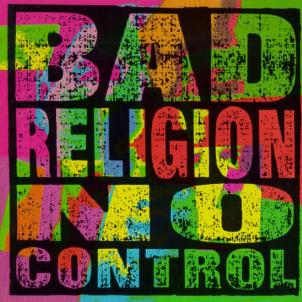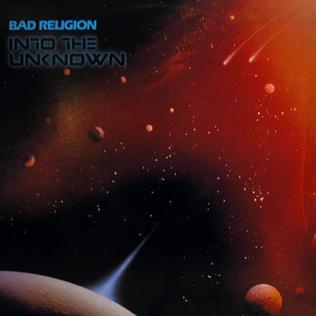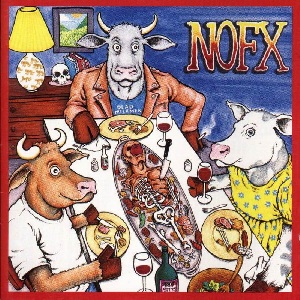Punk rock is a music genre that emerged in the mid-1970s. Rooted in 1950s rock and roll and 1960s garage rock, punk bands rejected the corporate nature of mainstream 1970s rock music. They typically produced short, fast-paced songs with hard-edged melodies and singing styles with stripped-down instrumentation. Lyricism in punk typically revolves around anti-establishment and anti-authoritarian themes. Punk embraces a DIY ethic; many bands self-produce recordings and distribute them through independent labels.

Grunge is an alternative rock genre and subculture which emerged during the mid-1980s in the U.S. state of Washington, particularly in Seattle and nearby towns. Grunge fuses elements of punk rock and heavy metal. The genre featured the distorted electric guitar sound used in both genres, although some bands performed with more emphasis on one or the other. Like these genres, grunge typically uses electric guitar, bass guitar, drums and vocals. Grunge also incorporates influences from indie rock bands such as Sonic Youth. Lyrics are typically angst-filled and introspective, often addressing themes such as social alienation, self-doubt, abuse, neglect, betrayal, social and emotional isolation, addiction, psychological trauma and a desire for freedom.
Gothic rock is a style of rock music that emerged from post-punk in the United Kingdom in the late 1970s. The first post-punk bands which shifted toward dark music with gothic overtones include Siouxsie and the Banshees, Joy Division, Bauhaus, and the Cure.
Alternative rock is a category of rock music that evolved from the independent music underground of the 1970s. Alternative rock acts achieved mainstream success in the 1990s with the likes of the grunge subgenre in the United States and the shoegaze and Britpop subgenres in the United Kingdom. During this period, many record labels were looking for "alternatives", as many corporate rock, hard rock, and glam metal acts from the 1980s were beginning to grow stale throughout the music industry. The emergence of Generation X as a cultural force in the 1990s also contributed greatly to the rise of alternative rock.

Generator is the sixth studio album by the punk rock band Bad Religion. Although the album was completed in the spring of 1991, it was not released until 1992; the band was not happy with the artwork and packaging, and went through several ideas that were eventually scrapped. Generator was the band's first release with drummer Bobby Schayer, who replaced Pete Finestone during the Against the Grain tour.

Suffer is the third studio album by American punk rock band Bad Religion, released on the Californian independent record label Epitaph Records on September 8, 1988. It was the first album that was both released and distributed by the label. Following the release of the EP Back to the Known (1985), Bad Religion went on a temporary hiatus, then reunited with its original members and went to work on their first full-length studio album in five years.

The U.S. state of Washington has been home to many popular musicians and several major hotbeds of musical innovation throughout its history. The largest city in the state, Seattle, is known for being the birthplace of grunge as well as a major contributor to the evolution of punk rock, indie music, folk, and hip hop. Nearby Tacoma and Olympia have also been centers of influence on popular music.

The New America is the eleventh studio album by punk band Bad Religion. It was released in 2000 and is their last album on Atlantic Records.

No Control is the fourth studio album by American punk rock band Bad Religion, released on November 2, 1989, through Epitaph Records. Bad Religion began work on the album while touring in support of their previous album, Suffer (1988). No Control is stylistically faster than its predecessor, owing more to hardcore punk. Additionally, it was the first Bad Religion album not to feature a lineup change from the previous album.

Recipe for Hate is the seventh studio album by American punk rock band Bad Religion, released on June 4, 1993. It was their last album on Epitaph Records for nine years and the band had switched to Atlantic Records, who re-released the album several months after its release.

No Substance is the tenth full-length album by the punk rock band Bad Religion. It was the band's third release on Atlantic Records, and their second studio album since guitarist Brett Gurewitz's departure.

Into the Unknown is the second studio album by Bad Religion, released in August 1983 through Epitaph Records. The album marks a distinct departure from the band's previous album; instead of featuring hardcore punk, the album is characterized by slower tempos, use of electronic organ and pianos, and a prog-influenced hard rock sound. Into the Unknown is the only Bad Religion album to feature Paul Dedona on bass and Davy Goldman on drums. Dedona was ejected from the band before their next recording and replaced by Tim Gallegos, while former drummer Pete Finestone returned to the band in 1986. The album also features Bad Religion's longest track to date, "Time and Disregard", which is seven minutes long.
Proto-punk is rock music from the 1960s to mid-1970s that foreshadowed the punk rock movement. A retrospective label, the musicians involved were generally not originally associated with each other and came from a variety of backgrounds and styles; together, they anticipated many of punk's musical and thematic attributes. The tendency towards aggressive, simplistic rock songs is a trend critics such as Lester Bangs have traced to as far back as Ritchie Valens' 1958 version of the Mexican folk song "La Bamba", which set in motion a wave of influential garage rock bands including the Kingsmen, the Kinks, the 13th Floor Elevators and the Sonics. By the late 1960s, Detroit bands the Stooges and MC5 had used the influence of these groups to form a distinct prototypical punk sound. In the following years, this sound spread both domestically and internationally, leading to the formation of the New York Dolls and Electric Eels in the United States, Dr. Feelgood in England, and the Saints in Australia.

Ribbed is the third studio album by the American punk rock band NOFX, released in 1991 through Epitaph Records. It was their last album to feature Steve Kidwiler on guitar; he was replaced by El Hefe. Ribbed is also the last NOFX album produced by Brett Gurewitz, who also produced their first two Epitaph albums. The album sold 8,000 copies upon its release.

Liberal Animation is the debut studio album by the American punk rock band NOFX. It was originally released in 1988 through Wassail Records, which was Fat Mike's label before Fat Wreck Chords. Brett Gurewitz produced the record, and even offered to release it on his label, Epitaph Records. The band decided to self-release it instead. It was re-released through Epitaph Records in 1991 with all new artwork. The title is a spoonerism of "animal liberation" and the cover artwork is a reflection of that. Bassist/Singer, Fat Mike has stated many times that he thinks it's the worst NOFX album. He wrote the majority of the album on a guitar he bought from Lynn Strait of Snot. The track "Shut Up Already" features a short cover of the Led Zeppelin song "Black Dog". It is the only full length album by NOFX to feature Dave Casillas on guitar. Amateur style music videos were made for the tracks "Shut Up Already" and "Mr. Jones."

How Could Hell Be Any Worse? is the debut studio album by American punk rock band Bad Religion, released on January 19, 1982 by Epitaph Records. Released almost a year after their self-titled EP, it was financed from the sales of the self titled EP and partly by a $1,000 loan by guitarist Brett Gurewitz's father. Its success surprised the band when it sold 10,000 copies in under a year.

Gas Huffer was an American garage rock band from Washington. They were known for their informal and comical lyrics and their antic-laden stage presence.

Integrity, Technology & Service is the second studio album by the garage rock band Gas Huffer. It was released in 1992 on Empty Records. The futuristic artwork on the cover sets the tone for the music on the album. The band supported the album with a North American tour.

Just Beautiful Music is an album by American rock band Gas Huffer, released in 1998 via Epitaph Records.

Hectic is the debut EP by the American ska punk band Operation Ivy. It was released in January 1988 through Lookout! Records. Hectic is credited as one of the first ska-core records.
















